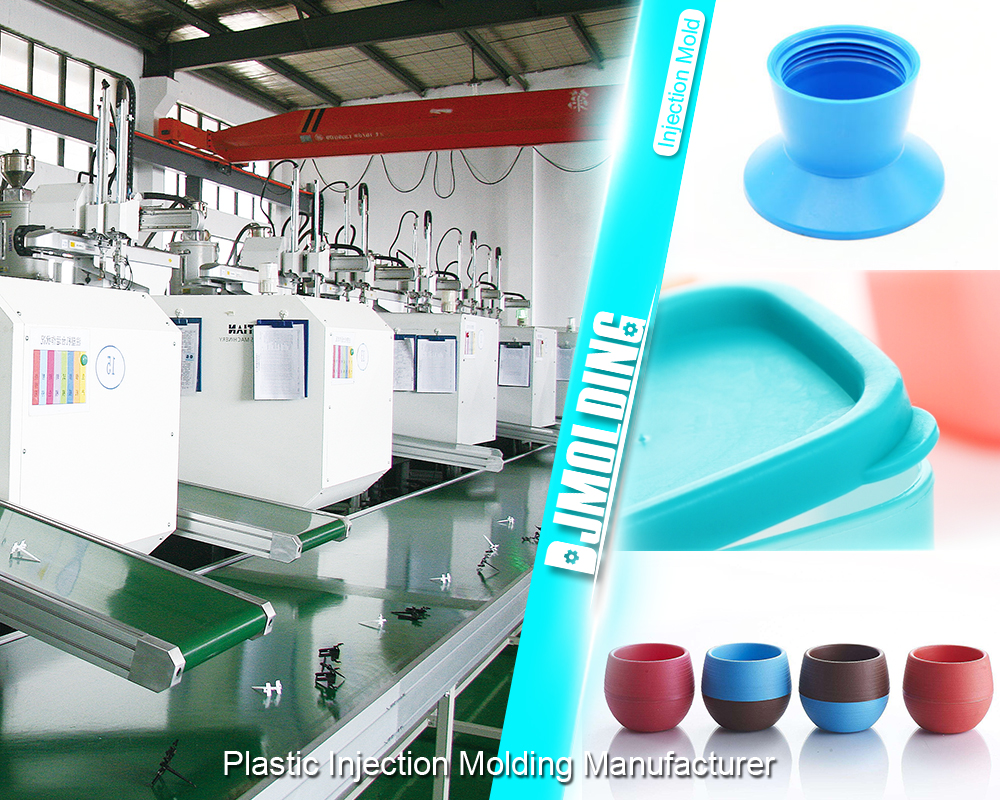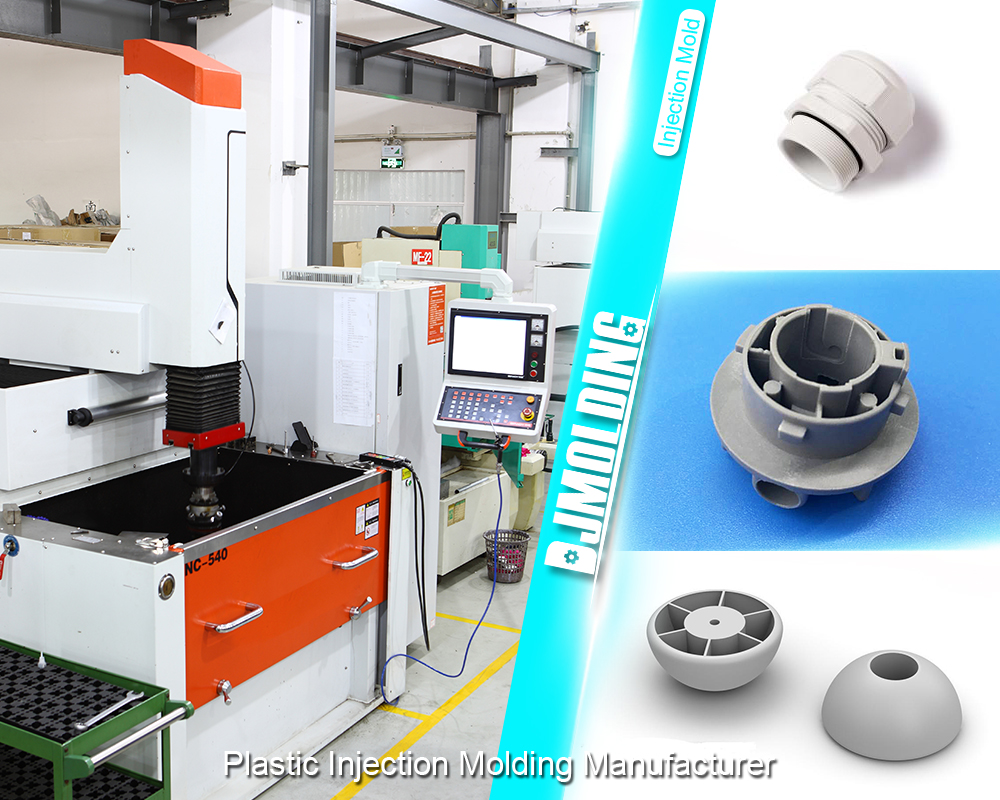- August 8, 2023
- Posted by: Plastic Injection Molding
- Category: plastic injection molding
The Benefits of Recycled Plastic Injection Molding
Recycled plastic injection molding is a sustainable and eco-friendly manufacturing process that offers numerous benefits, including cost savings, material properties, and reduced environmental impact. In this blog post, we will explore the process of recycled plastic injection molding, its applications, and the technological advancements that have made it a viable option for businesses looking to reduce their carbon footprint.
Introduction
Plastic injection molding is a manufacturing process that involves melting plastic pellets and injecting the molten plastic into a mold. On the other hand, recycled plastic injection molding consists of using recycled plastic instead of virgin plastic pellets. This process offers several benefits and is becoming increasingly popular in manufacturing. In this blog post, we will explore the benefits of using recycled plastic in injection molding, the process of recycled plastic injection molding, and its applications.

Understanding Recycled Plastic Injection Molding
Recycled plastic undergoes reprocessing and reuse instead of being disposed of as waste. To make recycled plastic, one collects plastic waste, sorts and cleans it, and then melts it to create pellets suitable for injection molding.
Explain the injection molding process and how it works with recycled plastic
The injection molding process involves the following steps:
- Melting plastic pellets in a machine
- Injecting the molten plastic into a mold
- Allowing the plastic to cool and solidify
- Ejecting the finished product from the mold
The process is the same for recycled plastic injection molding, except that recycled plastic pellets are used instead of virgin plastic pellets.
Discuss the benefits of using recycled plastic in injection molding
Environmental Impact
Using recycled plastic in injection molding reduces the amount of plastic waste that ends up in landfills and oceans. It also reduces the need for virgin plastic production, which requires significant energy and contributes to greenhouse gas emissions.
Cost Savings
Recycled plastic is often less expensive than virgin plastic, making it a cost-effective option for manufacturers. Additionally, recycling plastic may reduce disposal costs for companies that generate plastic waste.
Material Properties
Recycled plastic can have similar or better material properties than virgin plastic, depending on the type of plastic used. For example, recycled PET (polyethylene terephthalate) can be as strong and durable as virgin PET.
Applications of Recycled Plastic Injection Molding
Recycled plastic injection molding is a versatile manufacturing process that can produce various products across various industries. The following are some typical applications of recycled plastic injection molding:
Consumer Goods
Plastic packaging: People commonly use recycled plastic for plastic packaging, including bottles, containers, and bags. Recycled plastic injection molding is a practical application that reduces plastic waste and promotes the conservation of natural resources.
Household products: People can also use recycled plastic for household products, such as furniture, toys, and electronics. Recycled plastic injection molding is an important application that enables manufacturers to create top-notch products that are eco-friendly and affordable.
Automotive Industry
Interior parts: Manufacturers can use recycled plastic for internal factors of cars, such as dashboards and door panels. Recycled plastic injection molding is a widely used method for reducing the weight of vehicles and improving fuel efficiency. Moreover, it also plays a vital role in minimizing plastic waste produced.
Exterior parts: Manufacturers can also use recycled plastic for external details of cars, such as bumpers and body panels. Recycled plastic injection molding reduces vehicle weight, improves aerodynamics, and minimizes plastic waste production.
Medical Industry
Medical devices: Recycled plastic, such as syringes and IV bags, can be used for medical devices. Recycled plastic injection molding is a necessary process that helps reduce plastic waste in the medical industry and ensures that medical devices are safe and cost-effective.
Laboratory equipment: Recycled plastic, such as pipettes and test tubes, can also be used for laboratory equipment. Recycled plastic injection molding is a practical method for reducing plastic waste in the scientific community, and it also guarantees that laboratory equipment is of superior quality and eco-friendly.
Recycled Plastic Injection Molding Process
Recycled plastic injection molding is a process that involves carefully selecting and preparing recycled plastic materials to create high-quality products. Here are the steps involved in the injection molding process:
Material Selection and Preparation
- Choose the appropriate recycled plastic material based on the desired properties of the final product.
- Clean and test the recycled plastic material to ensure that it meets the necessary specifications for the injection molding process
Mold Design and Preparation
- Design the mold to the exact specifications of the final product, including shape, size, and texture.
- Clean and lubricate the surfaces of the mold to ensure proper flow and release of the material during the injection molding process
Injection Molding Process
- Heat the recycled plastic material to a specific temperature and melt it
- Inject the melted plastic into the mold at high pressure and cool it quickly to form the desired shape
- Open the mold and remove the finished product
Quality Control and Testing
- Inspect the finished product to ensure that it meets the necessary strength, durability, and functionality specifications.
- Address any defects or issues before shipping the product to the customer.
The recycled plastic injection molding process involves carefully selecting and preparing recycled plastic materials, designing and preparing the mold, injecting and cooling the plastic, and inspecting the finished product to ensure quality. By following these steps, manufacturers can create high-quality, cost-effective products while minimizing environmental impact.
Advancements in Recycled Plastic Injection Molding
The injection molding process has been used for decades to produce plastic products in large quantities. However, researchers and manufacturers are constantly making advancements in recycled plastic materials and injection molding technologies to improve environmental sustainability and manufacturing efficiency.
New Materials and Technologies
New types of recycled plastics, such as biodegradable plastics, are being developed to reduce the impact of plastic waste on the environment. Manufacturers can use these materials to create more environmentally friendly products in injection molding processes. New injection molding technologies, such as 3D printing, are used to create complex shapes and designs with greater precision and efficiency.
Improved Manufacturing Processes
Manufacturers are improving the manufacturing process to reduce waste and improve efficiency. By implementing automated procedures, manufacturers can minimize human error and waste. Organizations are also implementing recycling programs to reduce waste and reuse materials, further improving the sustainability of the injection molding process.
Environmental Sustainability
Using recycled plastic in injection molding is crucial to greater environmental sustainability. Using recycled materials, manufacturers can reduce the amount of waste sent to landfills and conserve natural resources. Recycled plastic injection molding can also help reduce carbon emissions by using less energy and producing fewer greenhouse gases.
Some specific advancements in recycled plastic injection molding include:
- Use biodegradable plastics, such as PLA (polylactic acid), and compost them afterward.
- Use of recycled materials in injection molding processes, reducing the amount of plastic waste generated.
- Implementation of closed-loop manufacturing processes, where waste is reused in the manufacturing process to reduce waste and conserve resources.
- Use 3D printing technology to create more complex designs with greater precision, reducing material waste generated in manufacturing.
- The goal is to implement lean manufacturing processes to minimize waste and enhance efficiency during manufacturing.

CONCLUSION
In conclusion, recycled plastic injection molding offers numerous benefits for manufacturers, consumers, and the environment. Manufacturers can reduce costs, conserve resources, and create products with improved material properties by using recycled plastic materials. Recycled plastic injection molding is a versatile and practical manufacturing process in various applications, including consumer goods, automotive parts, and medical devices. As advancements in recycled plastic materials and injection molding technologies continue, using recycled plastic in manufacturing will become increasingly crucial for companies looking to improve their sustainability and reduce their environmental impact.
For more about the benefits of recycled plastic injection molding,you can pay a visit to Djmolding at https://www.djmolding.com/recycled-plastic-injeciton-molding/ for more info.
Article Original From: https://www.djmolding.com/the-benefits-of-recycled-plastic-injection-molding/
